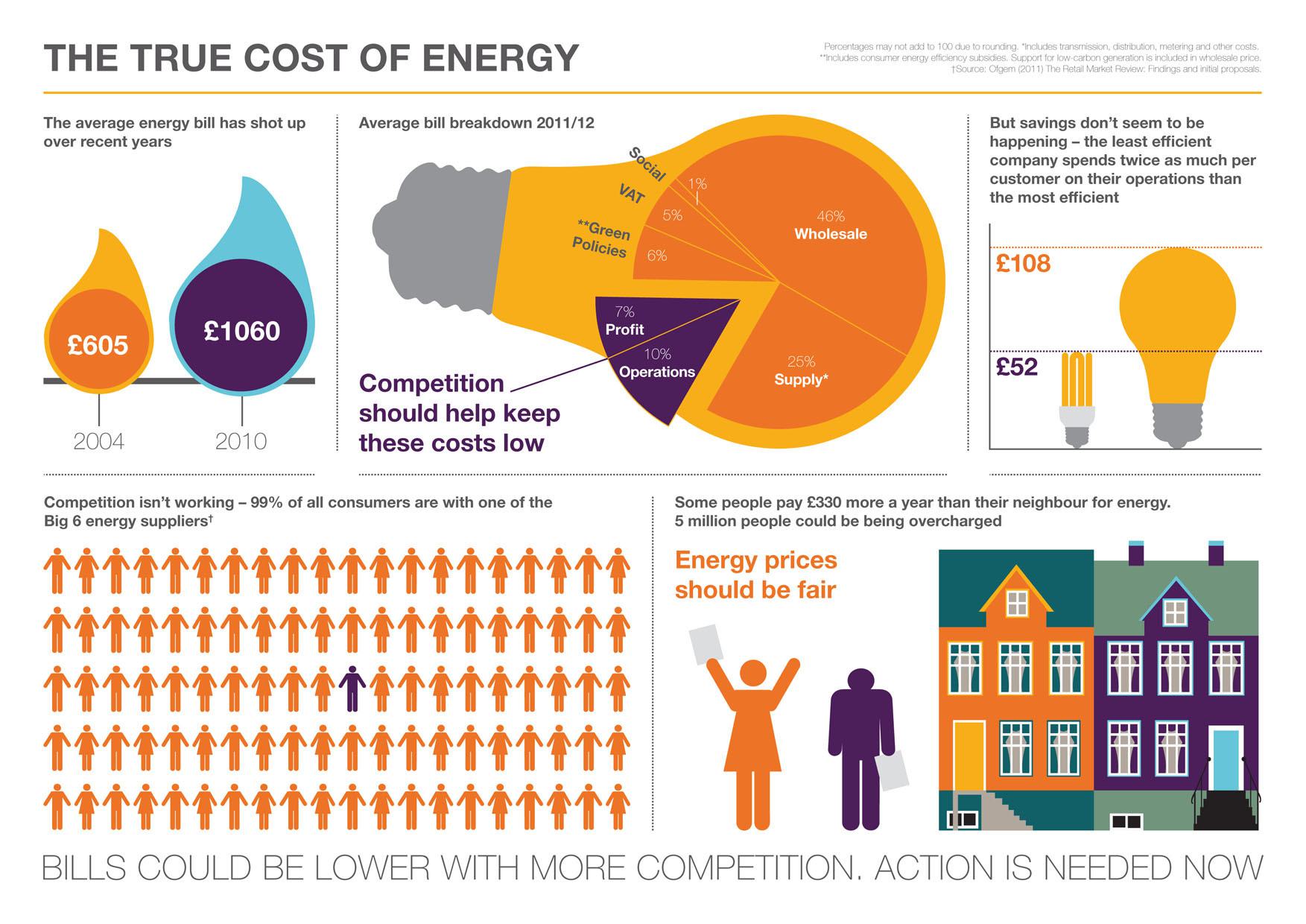The true cost of energy: How competition and efficiency in the energy supply market impact on consumers' bills
Article
This report sets out to establish what impact a lack of competition in the energy supply market is having on consumers' energy bills. We conclude that there is a lack of competition in the energy supply market and that some consumers are paying over the odds as a result.
There is a need for greater fairness in terms of costs charged to energy consumers. People cannot choose to 'opt out' of buying energy. Regulation of the supply market must aim to produce beneficial outcomes for the majority of consumers and not simply those that are most active, particularly at a time of high unemployment and when incomes are squeezed.
We put forward recommendations for increasing competition in the energy supply market and exerting downward pressure on energy prices.
Some of our key findings are:
- Contrary to what we would expect from a competitive market, operational costs per customer account across suppliers have diverged since 2007: that is, the gap between the most and least efficient provider in terms of operational costs has gotten wider.
- Costs to suppliers of delivering environmental and social policies may be as much as £9 per customer per year less than Ofgem has reported.
- Taking a moderate view of the effect of increased competition on household energy prices, we estimate average potential savings of £70 per year by 2020. This is equivalent to the costs to consumers of the electricity market reform, the carbon price floor, the feed-in tariff (FIT), the warm home discount and most of the renewables obligation combined.
The report's core argument is summarised in the following infographic (click to enlarge or download as PDF):
Related items

Rule of the market: How to lower UK borrowing costs
The UK is paying a premium on its borrowing costs that ‘economic fundamentals’, such as the sustainability of its public finances, cannot fully explain.
Restoring security: Understanding the effects of removing the two-child limit across the UK
The government’s decision to lift the two-child limit marks one of the most significant changes to the social security system in a decade.
Building a healthier, wealthier Britain: Launching the IPPR Centre for Health and Prosperity
Following the success of our Commission on Health and Prosperity, IPPR is excited to launch the Centre for Health and Prosperity.
